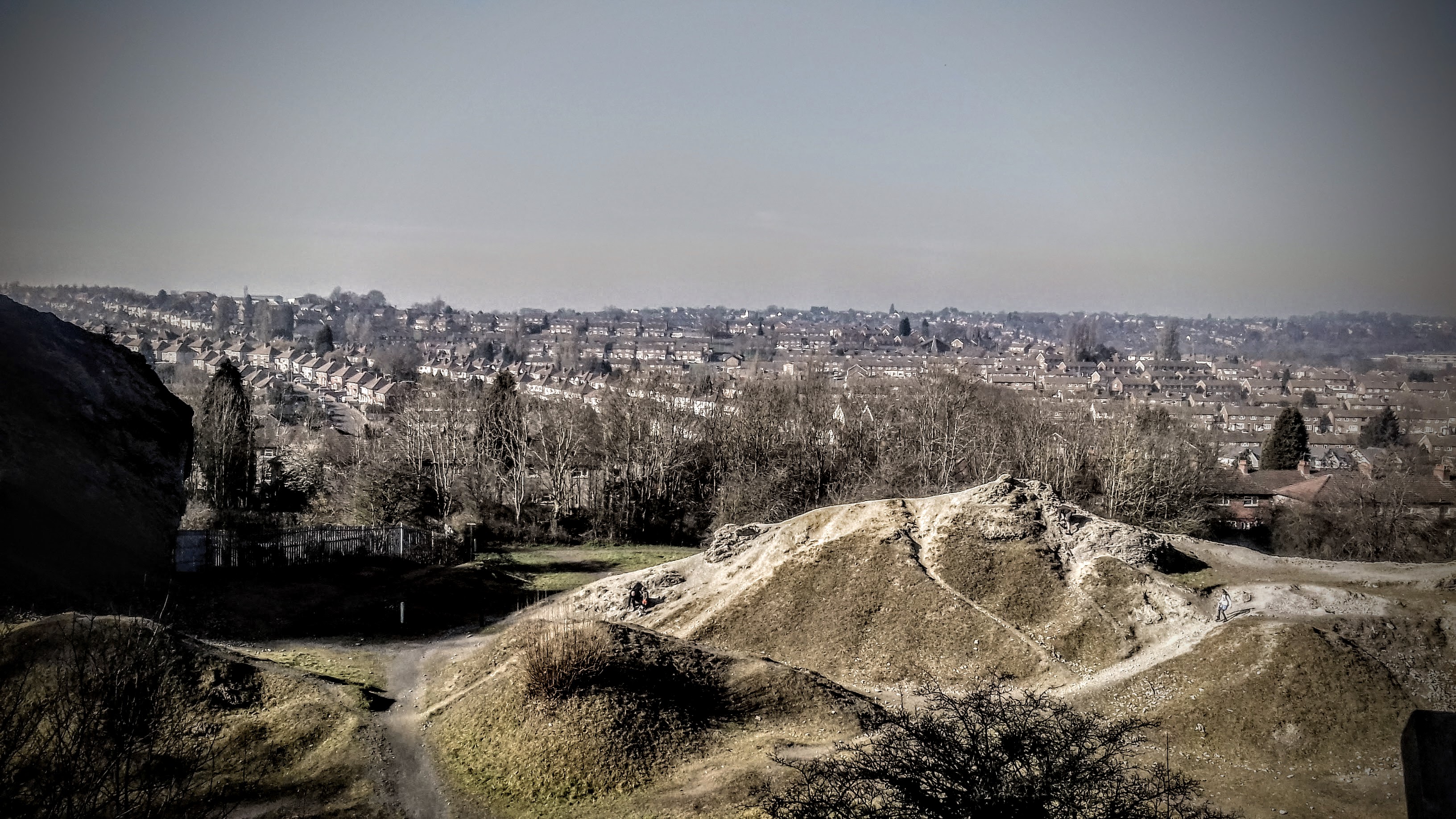A poet in residence

Dr Robert Francis, lecturer in Creative and Professional Writing blogs about his role as a Poet in Residence for the Black Country Geological Society.
Feldspar
Thick coal seams smell cool
as damp astrophyllites
petrified in Moorcroft’s
clinker rock mazes. Steve
strides here. Peering at pools
housing pig minerals
slag-heaped in wind-whispered
waters, sighs, pulls path back
to Darlaston bedsit before bats
pluck dusk skimming insects.
Steve’s basalt is tea stained
mattress - orthopedic, prescribed
since the crash; ‘e’s spines cog’avered,
like Walsall ripple beds. He sinks
as still leaves, set in pigeonite feldspar,
float in flow sets.
The Black Country’s industrial heritage forged unique and important communities and cultures; connected to the fossil and mineral rich grounds. One such fossil is Chain Coral; a now extinct form of colonising coral. Single cells branch off, forming helix patterns. These fossil-chained grounds gave rise to the chain makers, steelers and miners. The chain continues to be an important symbol of the region’s heritage, representing strong communal / cultural links. Chains run deep in the region’s cultural psyche and the deep time soils.
The UNESCO Black Country Geopark is perfect for this chain tracking. They are beautiful, rich havens of the natural, where prehistoric relics rest; blumenbachii, crinoid, sea lily locked in fossil time-traps. Time and space changes can be mapped in the lines and layers of differently coloured rocks that pierce the earth. Stare at Wren's Nest ripple beds and you’re rushed with awe in realising - physically touching and sensing - that 420 million year ago this land was a tropical ocean. These relics humble us.
Take West Park in Wolverhampton - huge glacial erratics are pitched in the park grounds like ancient totems. They travelled hundreds of miles during the glacial epoch and are older still. A poignant reminder of the toddlerdom of humanity. You can touch this piece of ancient movements where kids play football, where dog walkers and joggers circulate, just minutes from Wolverhampton's bustle. The same can be said of Hayes Cutting; a fascinating dipping sequence tucked behind a rusted rail on the Industrial Estates of The Lye. Commuters, deliveries, school runs zip passed as it sits in almost invisibility.
I see it as a touchstone for reconnecting with our locales and the Earth in a deep time context and with the tactile knowledge that runs down to the oldest parts of our biology. Totem is exactly the right word for West Park's erratics, and I'd use it for the other features across the region too: that which, with a strange sense of animism, calls and connects people and place.
As the world becomes more conscious of ecological and climate debates, it’s becoming obvious that poetry and creative pursuits are necessary for the future of our cultures, communities and economies. The future of creativity is wide open. Creatively mapping regions in these ways is imbedded in what I do at the University of Wolverhampton. I encourage my students to think about their writing with this laying of local symbolic charge. We’ve got a great team in Creative and Professional Writing that use this and other regions to reconfigure what place and identity mean.
Rupture/Rapture
Rowley raggers slogged
oxidised slag from boshboil
stew, turned the earth
inside out, plucking mafic
hailstones in a bum-hul-bum-hul-
bum-hul beat. Bumblehole sub
sides with wild warren release.
Hingley’s lost to Rush rushings
and Reedmace - this is the new
proving house since Coots cooped
Cobb’s ruin. Searching hellish dikes
and sills here where rocks glowed
to surface, you cast shiny euhedral
finds into reddened waters, pray
the mirroring stays under.
In July 2020, Dr Robert Francis became Poet in Residence for the Black Country Geological Society. A role enabled by the University of Wolverhampton Doctoral College’s Early Research Award Scheme.
He's the author of two novels, Bella and The Wrenna, published with Wild Pressed Books, and a poetry collection, Subsidence, with Smokestack Books. In 2019, Dr Francis was the inaugural David Bradshaw Writer in Residence at the University of Oxford and is currently Poet in Residence for The Black Country Geological Society.
His academic research focuses on place-identity in the Black Country and has been published in a number of edited collections; he co-edited the book, Smell, Memory and Literature in the Black Country (Palgrave McMillan) with Professor Sebastian Groes.
Find out more about our Creative and Professional Writing course.
Apply via Clearing.
For more information please contact the Corporate Communications Team.


/prod01/wlvacuk/media/departments/digital-content-and-communications/images-2024/Diane-Spencer-(Teaser-image).jpg)
/prod01/wlvacuk/media/departments/digital-content-and-communications/images-18-19/220325-Engineers_teach_thumbail.jpg)
/prod01/wlvacuk/media/departments/digital-content-and-communications/images-2024/240509-Menopause-Research-Resized.jpg)
/prod01/wlvacuk/media/departments/digital-content-and-communications/images/Maria-Serria-(teaser-image).jpg)
/prod01/wlvacuk/media/departments/digital-content-and-communications/images-2024/241014-Cyber4ME-Project-Resized.jpg)
/prod01/wlvacuk/media/departments/digital-content-and-communications/images-2024/240315-Research-Resized.jpg)
/prod01/wlvacuk/media/departments/digital-content-and-communications/images-2024/BDA-group-photo.jpg)